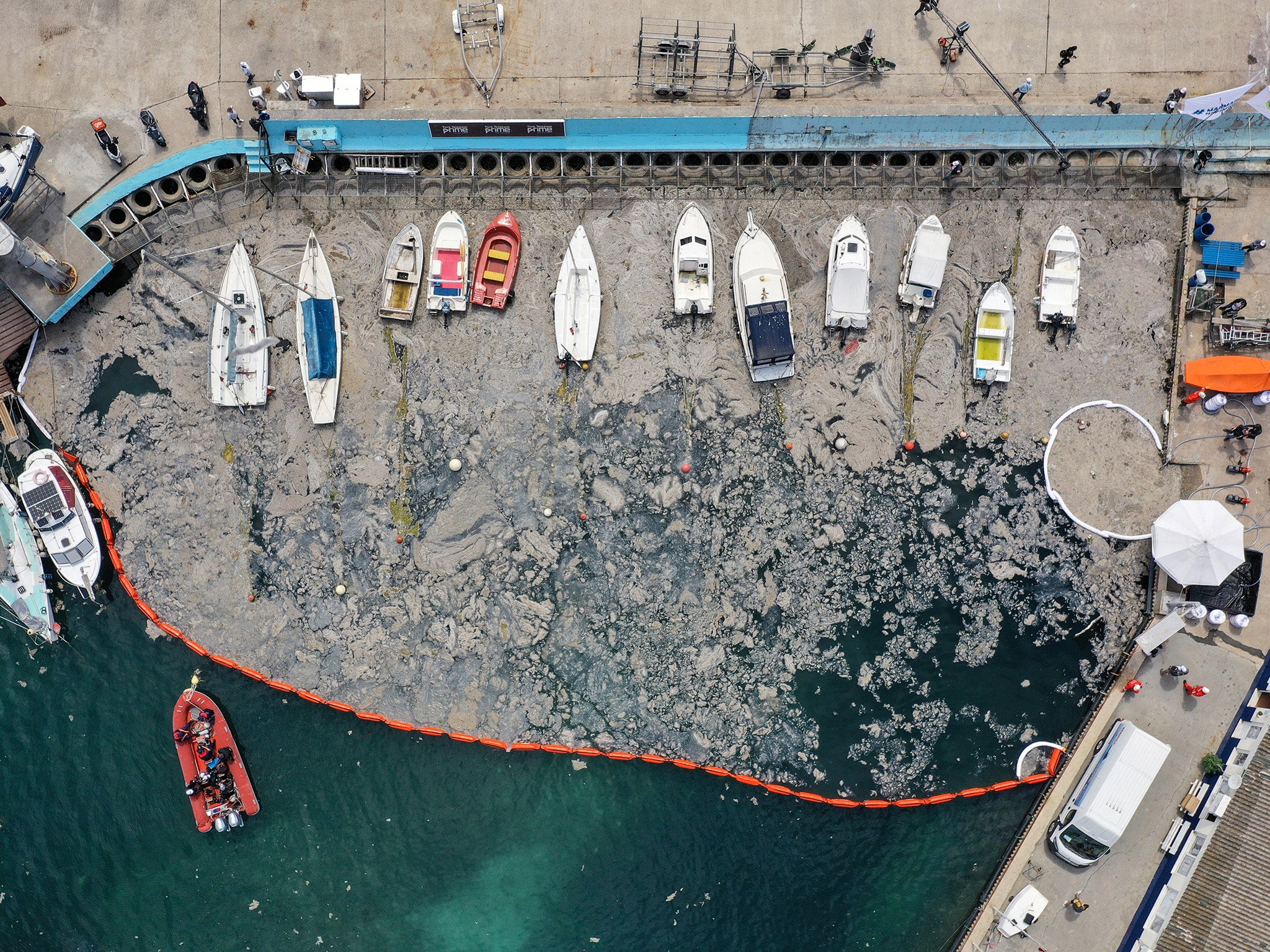Sea snot: Turkey launches clean-up operation to save suffocating shores
Environment minister plans to declare Sea of Marmara a protected area
Your support helps us to tell the story
From reproductive rights to climate change to Big Tech, The Independent is on the ground when the story is developing. Whether it's investigating the financials of Elon Musk's pro-Trump PAC or producing our latest documentary, 'The A Word', which shines a light on the American women fighting for reproductive rights, we know how important it is to parse out the facts from the messaging.
At such a critical moment in US history, we need reporters on the ground. Your donation allows us to keep sending journalists to speak to both sides of the story.
The Independent is trusted by Americans across the entire political spectrum. And unlike many other quality news outlets, we choose not to lock Americans out of our reporting and analysis with paywalls. We believe quality journalism should be available to everyone, paid for by those who can afford it.
Your support makes all the difference.Turkey has vowed to save the Sea of Marmara by cleaning up the slimy “sea snot” that is covering large areas of water and threatening marine life and the fishing industry.
Authorities launched a disaster management programme on Tuesday targeting the thick layer of organic sludge, known as marine mucilage, which has spread through the sea south of Istanbul.
Some of the “sea snot” has sunk below the waves, suffocating seabed life, while on the surface it has covered harbours and shorelines.
Murat Kurum, Turkey’s environment minister, said 25 sea surface-cleaning and barrier-laying boats, as well as 18 other vessels, were working to prevent the spread of the mucilage. Illegal fishing and “ghost” nets would be halted and Turkey would declare Marmara a protected area by the end of 2021, he said.
“We are starting our cleaning efforts both on land and at sea at 15 points today,” Kurum said. “We are determined to save the Marmara and we will save it.”
Some 1,000 workers would bring the waste to shore and truck it to municipal facilities, he said.
Scientists have warned that climate change and pollution have contributed to the spread of the mucilage, which contains a wide variety of microorganisms and can flourish when nutrient-rich sewage flows into seawater.
Residents welcomed the clean-up, but complained about what they called years of uncontrolled pollution in the sea.

“Of course, this sea snot is something that is caused over a few years. Formed by our years-long unawareness, the harmful substances thrown into the sea caused a vomiting in the seabed and when there was no current, it stayed there,” said Kadir Saydam, a 65-year old pharmacist.
“Having the cleaning efforts is good visually,” he added.
President Erdogan has blamed the plague on untreated water from cities including Istanbul, home to some 16 million people, and vowed to “clear our seas from the mucilage scourge”.
Additional reporting by agencies

Join our commenting forum
Join thought-provoking conversations, follow other Independent readers and see their replies
Comments